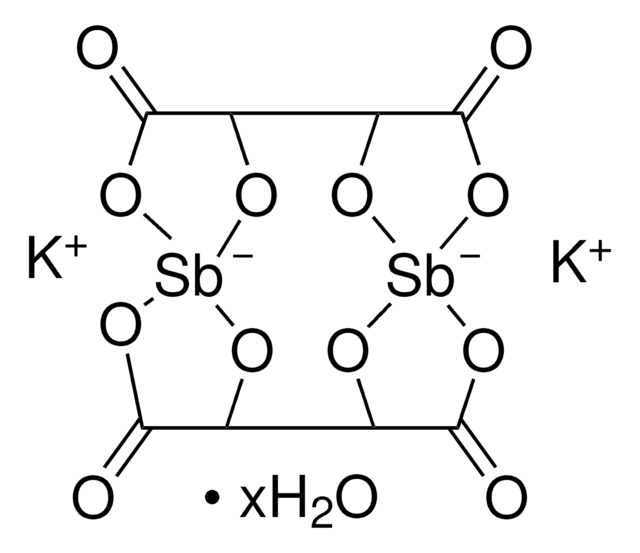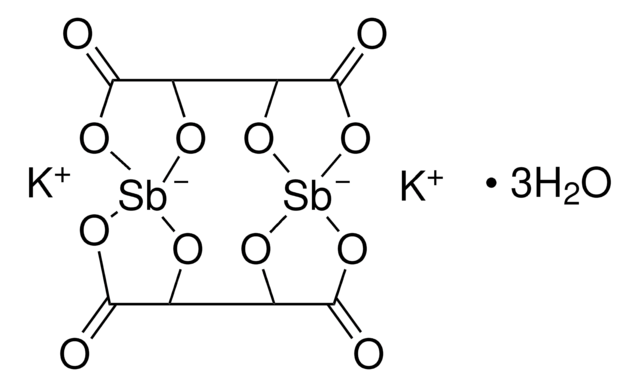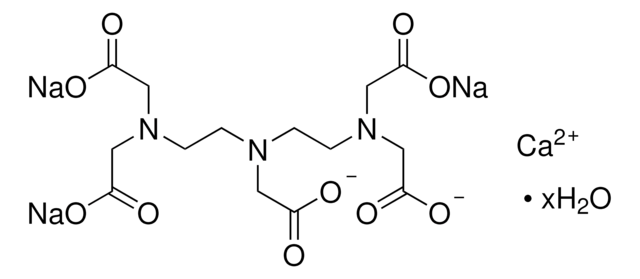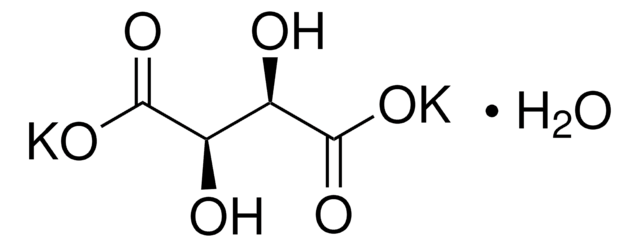383376
Potassium antimonyl tartrate trihydrate
ACS reagent, ≥99%
Synonyme(s) :
Antimony potassium tartrate trihydrate, Tartar emetic
About This Item
Produits recommandés
Qualité
ACS reagent
Niveau de qualité
Pureté
≥99%
99.0-103.0%
Forme
powder
Impuretés
≤0.020 meq/g Titr. acid or base
Perte
≤2.7% loss on drying
Pf
≥300 °C (lit.)
Solubilité
water: soluble
Traces de cations
As: ≤0.015%
Chaîne SMILES
O.O.O.[K+].[K+].O=C1O[Sb-]23OC1C4O[Sb-]5(OC(C(O2)C(=O)O3)C(=O)O5)OC4=O
InChI
1S/2C4H4O6.2K.3H2O.2Sb/c2*5-1(3(7)8)2(6)4(9)10;;;;;;;/h2*1-2H,(H,7,8)(H,9,10);;;3*1H2;;/q2*-2;2*+1;;;;2*+3/p-4
Clé InChI
WBTCZEPSIIFINA-UHFFFAOYSA-J
Vous recherchez des produits similaires ? Visite Guide de comparaison des produits
Catégories apparentées
Description générale
Application
Mention d'avertissement
Danger
Mentions de danger
Conseils de prudence
Classification des risques
Acute Tox. 3 Oral - Acute Tox. 4 Inhalation - Aquatic Chronic 2 - Skin Irrit. 2 - Skin Sens. 1
Code de la classe de stockage
6.1D - Non-combustible acute toxic Cat.3 / toxic hazardous materials or hazardous materials causing chronic effects
Classe de danger pour l'eau (WGK)
WGK 3
Point d'éclair (°F)
Not applicable
Point d'éclair (°C)
Not applicable
Équipement de protection individuelle
dust mask type N95 (US), Eyeshields, Faceshields, Gloves
Faites votre choix parmi les versions les plus récentes :
Déjà en possession de ce produit ?
Retrouvez la documentation relative aux produits que vous avez récemment achetés dans la Bibliothèque de documents.
Les clients ont également consulté
Notre équipe de scientifiques dispose d'une expérience dans tous les secteurs de la recherche, notamment en sciences de la vie, science des matériaux, synthèse chimique, chromatographie, analyse et dans de nombreux autres domaines..
Contacter notre Service technique











